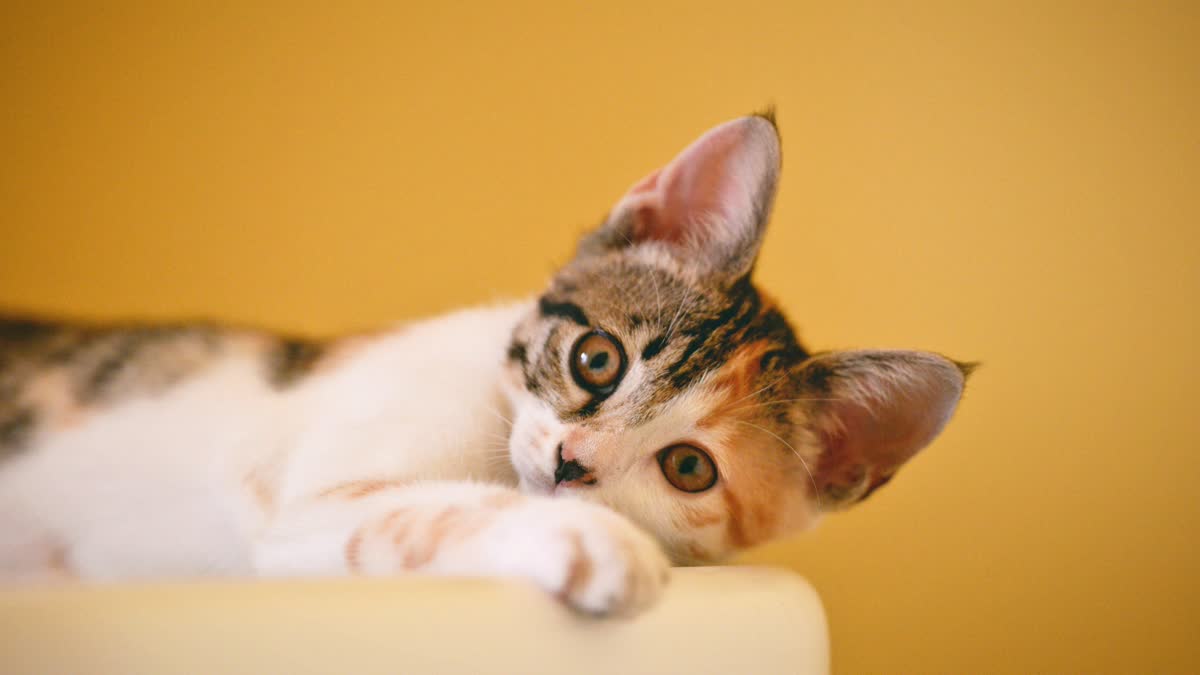Hyderabad: A group of researchers in the United Kingdom detected a new variant of Coronavirus that poses a threat to cats. Originating from Cyprus, this variant, named F-CoV-23, is causing a disease called infectious Peritonitis (severe inflammation of the thin layer of tissue inside the abdomen that lines the cavity, enclosing organs) has sparked worries among researchers due to its potential to cause fatalities among pets, especially cats. The previously undescribed cat family variant appears to have borrowed genetic information from a highly virulent dog family Coronavirus.
Dr Cyriac Abby Philips, a hepatologist from Kerala, wrote in X, about the outbreak, with an alert for cat parents. If you did not know, a novel coronavirus mutated into a recombinant coronavirus, jumped host, changed its target host cell of attack (from lung to abdomen) and is killing 1000s of cats world over, he wrote while explaining the infection and how it mutated to attack the cats.
-
Cat owners be aware!
— TheLiverDoc (@theliverdr) November 17, 2023 " class="align-text-top noRightClick twitterSection" data="
If you did not know, a novel coronavirus mutated into a recombinant coronavirus, jumped host, changed its target host cell of attack (from lung to abdomen) and is killing 1000s of cats world over.
The new virus, which is causing a disease called infectious… pic.twitter.com/och6LtMeLW
">Cat owners be aware!
— TheLiverDoc (@theliverdr) November 17, 2023
If you did not know, a novel coronavirus mutated into a recombinant coronavirus, jumped host, changed its target host cell of attack (from lung to abdomen) and is killing 1000s of cats world over.
The new virus, which is causing a disease called infectious… pic.twitter.com/och6LtMeLWCat owners be aware!
— TheLiverDoc (@theliverdr) November 17, 2023
If you did not know, a novel coronavirus mutated into a recombinant coronavirus, jumped host, changed its target host cell of attack (from lung to abdomen) and is killing 1000s of cats world over.
The new virus, which is causing a disease called infectious… pic.twitter.com/och6LtMeLW
How it is transmitted? With around 8,000 reported cat deaths in Cyprus and concerns about a much higher toll, there is a growing alarm in the UK's scientific community. The suspected carrier-infected cat is kept under isolation and further medical surveillance after a Covid positive test. This hybrid strain has caused significant devastation among feline populations, spreading rapidly through direct transmission primarily via fecal contamination similar to other cat and dog coronavirus strains.
Precautionary measures- Cypriot authorities have swiftly initiated emergency measures to contain the outbreak in their "island of cats," with veterinarians and volunteers working tirelessly to care for infected animals. Dr. Christine Tait-Burkard highlighted the virus's contagious nature, emphasising its transmission through shared spaces like litter trays or outdoor areas.
Possible treatments- Dinos Agiomamitis, an expert from CAT P.A.W.S Cyprus, a UK-based NGO, has expressed deep concerns, estimating a third of the cat population has already fallen victim to the virus. Moreover, discussions are underway regarding potential treatment using drugs like remdesivir and molnupiravir, previously used in human Covid-19 treatment, to mitigate the virus's spread among pets.
The emergence of F-CoV-23 underscores the need for urgent preventive measures, vigilant monitoring, and powerful protocols to protect the cat population in the UK and worldwide.
What is FIP? Feline infectious peritonitis (FIP) is an illness in cats caused by particular strains of the feline coronavirus. Most strains of feline coronavirus reside in the gut and typically do not cause serious illness. These are referred to as feline enteric coronavirus (FeCV).
Difference between FIP and FCoV- Feline Coronavirus (FCoV) is a common viral infection in cats, usually resulting in mild gastrointestinal symptoms. In certain cases, FCoV can transform into the FIP virus, allowing it to spread beyond the gastrointestinal tract. While FCoV is contagious, the transmission of FIP from cat to cat is not common.
Read More



